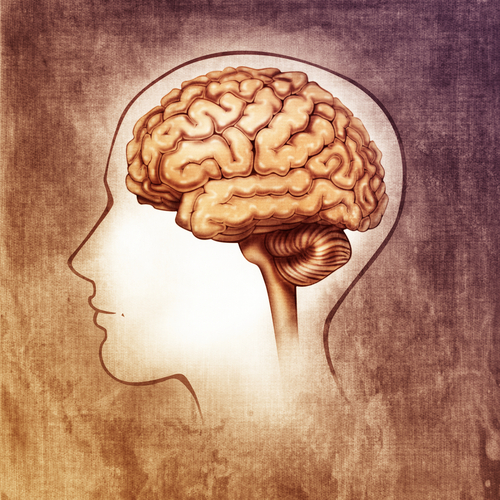The brain has taken over. The real genius of Albert Einstein’s brain! Is your brain depressed? Why our brains are addicted to fast food! How does the brain form original ideas?
One of these days, someone is bound to write that paper: What is it like to be a brain?
Until recently, the focus of brain research was purely medical. Nowadays, neuroscience investigates everyday mental functions in intact, average, healthy individuals. In some areas of psychology, like perception, the connection between brain and cognition is straightforward. In others, like personality research, less so. But the quest for knowledge is ongoing, and the hope is there that one day we will find complex functions, such as intelligence, consciousness, or perhaps the seat of the self, somewhere in the brain.
Which is why I was surprised to realize that (apart from a handful of clinical cases) I can’t list examples where neuroscience led to breakthroughs in psychology. I’ve never seen a neuroscientist look at a pattern of neural activity and say: “Hey, now that I look at these brains, I can predict something new about affect! Let’s test that in a behavioural experiment…” I’ve never even seen psychology redefine its root concepts due to neuroscientific findings. Working memory is still what it used to be before the brain made an appearance. So is self-consciousness, anxiety, addiction, romantic attachment. We start from the old definition, and only then augment it with neuro-findings. Could it be, then, that psychologists don’t really need to look at brains? Brain, brain, go away…
I think they don’t.
Neuroscientists and psychologists both try to add to the others’ discipline, of course. But often this is done in such an offhand manner that it borders on the offensive.
Psychologists will record brain activity during an experiment where social cognition is necessary, then point to a blob on the fMRI scan and conclude – what? That this mental function, too, has a neural correlate? How surprising. As if this makes cognition more real. But what type of neural activity underlies the haemodynamic response? How does it relate to individual differences in social sensitivity? If we were to deactivate feedback connections from higher areas, what would the scan look like? What would the expected behaviour be? In the cases where these sorts of conclusions are attempted, it sometimes gets worse rather than better. Then we’ll end up hearing, say, about a neurotransmitter for a certain mental function. Actually there’s lots of them, they all do a zillion things. It’s not enough to just add some neuro for psychocredibility.
And then, neuroscientists. Neuroscientists like to slap on psychological or social phenomena to their introductions and discussion sections. Yes, they’re looking at electrophysiological activity after a person sees a series of blips on a screen. But what they’re really explaining is…. culture. Or creativity. Introspection. Human nature, no less! It’s distressing to me that so few of my colleagues realize how naive this extrapaganza looks to social scientists (who study culture, creativity, etc.) – as silly as they look to us when they announce they came up with the scientific formula of Love. I know it’s unintentional, but at this moment in history we are thriving as the humanities are dying, so this lighthearted theorizing comes across as condescending. Ideas about human nature abound with intuitive concepts, and letting go of these intuitions is one of the hardest parts of being a social scientist. In neuroscience, these intuitions fuel our misguided belief that we are somehow explaining existential phenomena by looking at neural patterns. We’re not.
Yes, but reductionism, you will say. It’s a good thing, it’s a clear case: mental phenomena are all supported by synapses firing away! Of course they are. The problem is this tendency to take carefree hops across explanatory levels, going back and forth as it suits us, building an illusion that we are explaining something deeper. We equate brain and cognition, instead of using the rules of one to explain the phenomena of the other. If you are in my field (and I hope he’ll forgive me for using this example… my brain made me do it?), you might come across the statement that ‘the brain collects log-evidence’. Why log, you might ask? Because the formula that best captures evidence accumulation, contains a logarithm. So the mathematical computation we use to study evidence accumulation, becomes equated with the cognitive computation, which in turn becomes the neural computation. If you missed that, you were probably busy noticing that the statement is homuncular. Four explanatory levels in five words. Seamless transitions. This is neuroscience.
When I’m feeling particularly cynical, I’ll think that all we do with the connections between brain and mind is use them to sell our research. On better days, I think that it’s easy to find fascination in neighbouring fields, where something is easily available to our understanding but some of it is still out of reach. Both the brain and the mind are captivating, each in its own right. And the workings of one underlies the existence of the other – there is a special kind of magic to this. But neuroscience is at its best when it discusses how the brain works. And psychology is competent and deep when it discusses cognition. When the two fields meet, I’m reminded of mismatched lovers. Each perpetually drawn by the mystery of the other despite the frustration, desperately holding on to those sporadic good times, quietly aching for a deeper acceptance. And I, the wayward child of their troubled marriage, am left to find my way between them.
